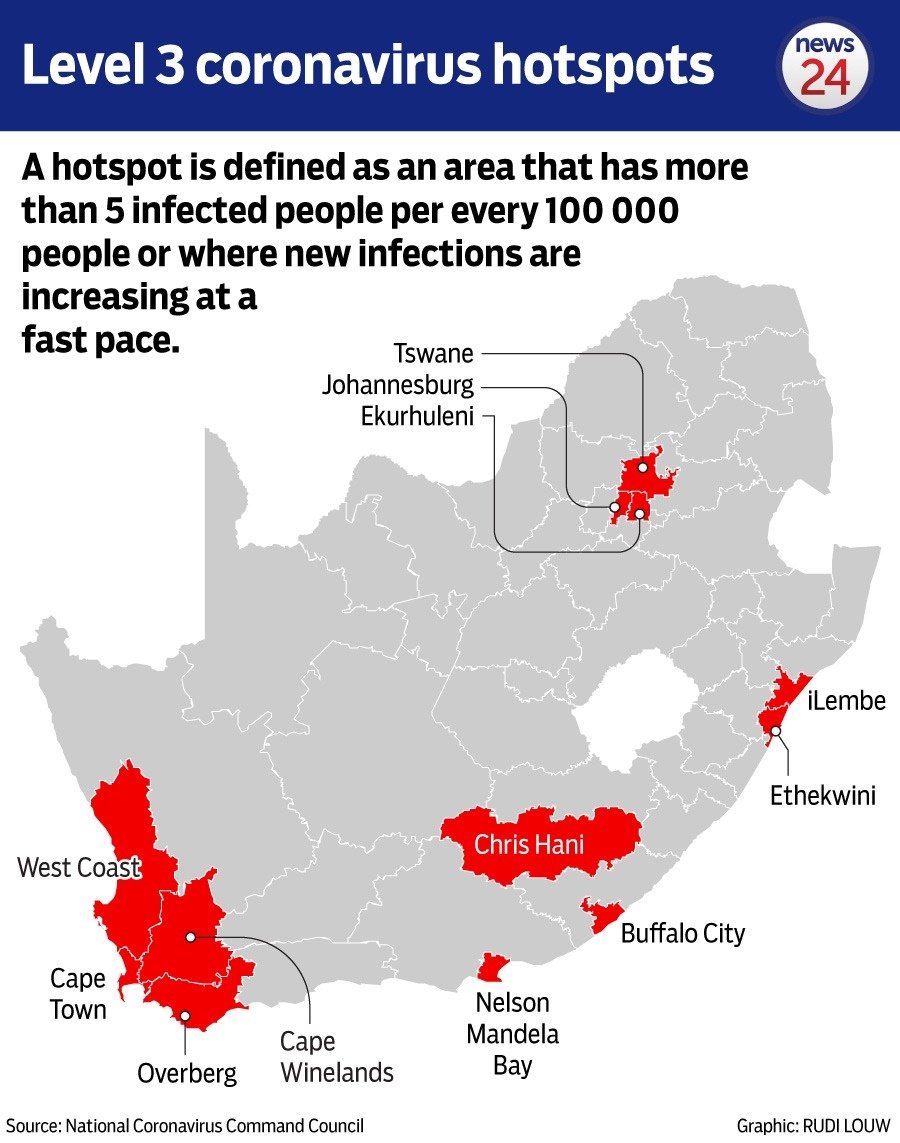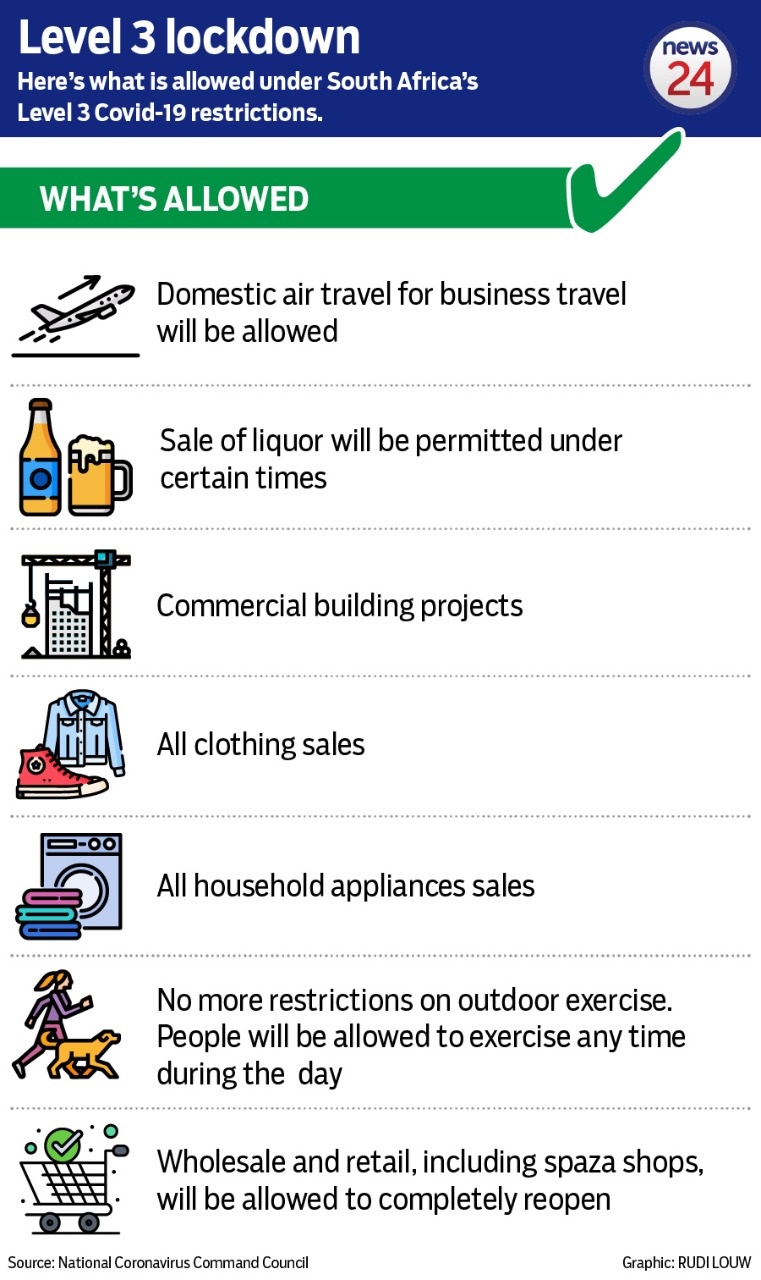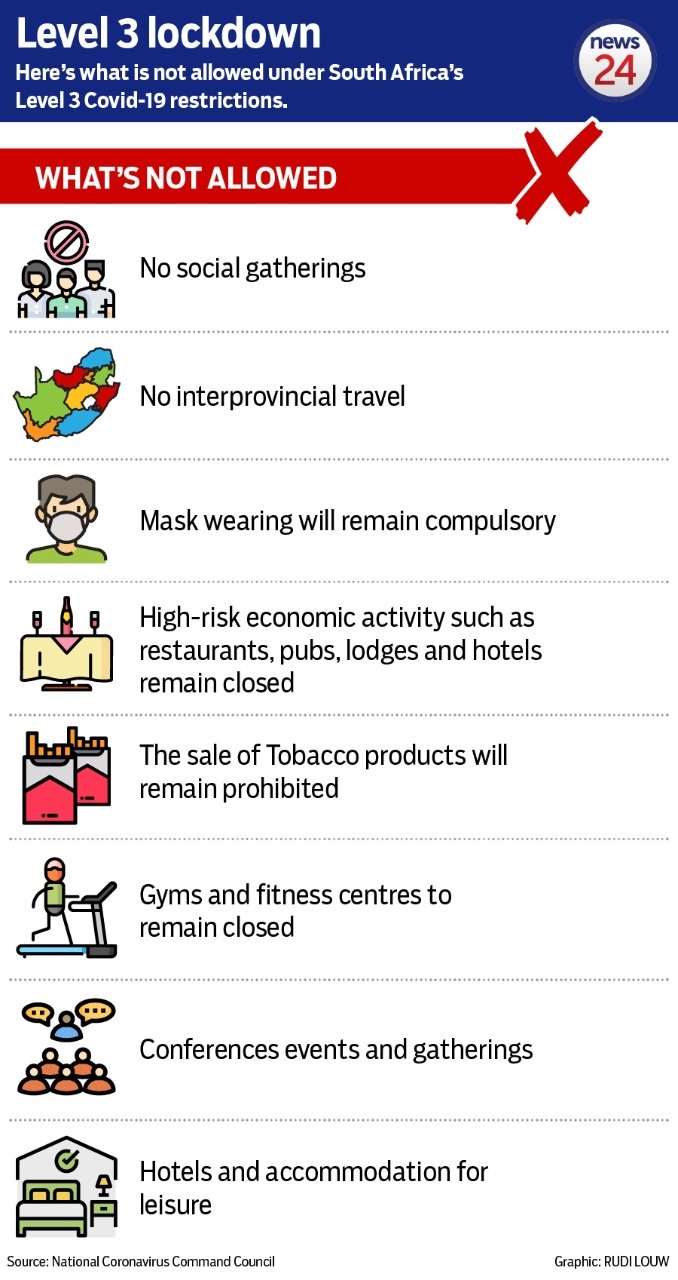Ramaphosa unveils Covid-19 hotspots, dos and don’ts under level 3 lockdown
“We are extremely grateful for the work they have done and continue to do to ensure that our response is informed by the best scientific evidence. We appreciate the diverse and sometimes challenging views of the scientists and health professionals in our country, which stimulates public debate and enriches our response.”
It has been an almost impossibly difficult and complicated period to navigate – with much of it being the government’s making, it must be said. A broken public health system, a depleted national fiscus, a misfiring public service and a weak economy did not give Ramaphosa the armoury with which to tackle a global pandemic of uncertain scope and impact.
Before the pandemic hit, the country was facing its biggest socioeconomic crisis in decades, with unemployment soaring, economic activity declining and our investment grade tanking. The pandemic, and many of the responses to it, have conspired to only make matters worse.
Our ability to support and sustain livelihoods – either through job creation or social grants – has been severely damaged by the last 10 weeks. And the country’s biggest problems remain as they were two months ago: weak electricity generation, the state of public owned companies, the urgent need for economic reform and the reconstruction of state institutions like the NPA and SARS.
The lockdown could not be sustained, Ramaphosa said. And the spread of the coronavirus is going to get “much worse” before it gets better.
But, for now, a semblance of normality beckons. Even if we are a diminished country.










